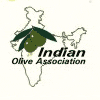
VN Dalmia serves as chairman of New Delhi-based Dalmia Continental Private Limited (DCPL). DCPL, Dalmia’s flagship company, owns Leonardo Olive Oil and Hudson Canola Oil — both market leaders in their categories. DCPL forms part of the Dalmia Group of companies which was founded by Dalmia’s father, the industrialist Ramkrishna Dalmia, in the early 1930s as the Dalmia-Jain Group which would become India’s third largest business empire.
Dalmia is a Knight Commander of Italy having been awarded the “Order of the Star of Italian Solidarity” in recognition of his contribution to the development of friendly relations with Italy. He is also president of the Indian Olive Association and executive vice president of the Babu Jagjivan Ram National Foundation, an autonomous organization of the Indian government dedicated to the uplift of the backward classes. He has previously been president of the Indo-American Chamber of Commerce (NIC).
In addition to an MBA from the University of Virginia’s Darden School of Business, Dalmia received a degree in economics from the University of Delhi’s Shri Ram College of Commerce.
Olive Oil Times: What are the promotional activities of the International Olive Council (IOC) in India?
 VN Dalmia: The IOC conducted two campaigns in India, the first in 2007 and the 2nd in 2009. The budget for the first campaign was €400,000 and for the second, €800,000. The promotional activities consisted of: participation in trade fairs and exhibitions, conducting workshops and lectures for women, creation of booklets and information kits, a website, collaboration with a celebrity chef/ambassador (Sanjeev Kapoor and Prahlad Kakkar), market research, public relations and publicity including commercials on television and advertisements in the print media. They have no plans for any further campaigns in India.
VN Dalmia: The IOC conducted two campaigns in India, the first in 2007 and the 2nd in 2009. The budget for the first campaign was €400,000 and for the second, €800,000. The promotional activities consisted of: participation in trade fairs and exhibitions, conducting workshops and lectures for women, creation of booklets and information kits, a website, collaboration with a celebrity chef/ambassador (Sanjeev Kapoor and Prahlad Kakkar), market research, public relations and publicity including commercials on television and advertisements in the print media. They have no plans for any further campaigns in India.
The Consortium of Guarantee of Quality Extra Virgin Olive Oil has however, launched a 3‑year campaign in India this year, financed by the European Union and Italy with a budget of €2 million.
OOT: Do you really feel that olive oil will penetrate all strata of the Indian market as a cooking medium?
VND: It must, but it will happen gradually. The fact is that India ranks highest in cardiac patients, with 10% of the population affected and the World Health Organization expects heart disease to be the single greatest killer in by 2015.
Given the backdrop of the national health situation, I expect olive oil to penetrate larger sections of the market, once people realize it is not as expensive to use as it seems. Presently, we have made great efforts to publicize the fact that olive oil is used in smaller quantities than other oils (as low as 1/3rd the quantity) and that there are different grades of olive oil for different uses. Olive pomace oil is the most economical and suitable for Indian cooking and is a good substitute for those used by the Indian consumer, i.e. sunflower, safflower, peanut, and others.
In India oil is used as a cooking medium, not as a flavoring agent. Earlier, everyone advised use of the extra virgin variety, as it is the best. It has the best flavor, but is not always the best for Indian cuisine.
In the light of the disease scenario in our country, if the Indian household has to pay Rs.20 more per day for better health, is it too high a price to pay? Given the health benefits, I have no doubt that olive oil will penetrate the upper and middle strata of the Indian market as a cooking medium.
OOT: Olive pomace oil is supposedly extracted with a chemical Hexane and is considered the lowest grade in olive oils. It is therefore a variety of olive oil that is normally not utilized for cooking in Europe or the USA. What are your views on this?
VND: The same solvent Hexane is used to extract other cooking oils like it is for Olive Pomace Oil. The use of Hexane, by itself is not a matter of concern. What should be a matter of concern is the level of Benzopyrene prevalent in any solvent- extracted oil. Benzopyrene results from the process of solvent extraction and excess is said to be harmful. India has no standard for the permissible limit of Benzopyrene in solvent-extracted edible oils. The European Union (EU) has a strict limit of 2 parts per billion and as all the Olive pomace oil comes from the EU, it is amply safe.
The US started out with Olive pomace oil 30 years ago and gradually moved up to extra virgin, as the general level of acceptance increased. Olive pomace oil is even today used in many countries for high-heat cooking or deep frying. It has a very high smoking point, which is not reached easily. In terms of beneficial fat content, i.e. monounsaturated fat, it has exactly the same as other grades of olive oil and therefore provides the same health benefits.
OOT: What kind of activity is the Indian Olive Association planning in the near future to popularize olive oil in India?
VND: We are in the midst of deliberations about what would be the best approach to popularize olive oil in India. All options are open at the moment. We are considering press, electronic media, targeted promotions to the medical community and other options. We expect Indians to move towards olive oil primarily because of its health benefits and our decisions shall be guided by this factor. We expect to decide our activities in the next few months.
OOT: This is concerning the few olive cultivation projects in India. Do you think that these would ever be viable to the extent of bringing down the prices of olive oil and thereby making it accessible to the average Indian?
VND: Currently, all the olive oil consumed in India is imported. The entrepreneurs who are investing in olive cultivation now are courageous entrepreneurs, because they are doing something new in India. It will be 2013 or later that their investments will begin to provide returns.
The Rajasthan project is a pioneering project and the first of its kind in India. At present, the project is a pilot project on 250 hectares of land where the State Government of Rajasthan has provided the land, the Israeli firm has provided the technical expertise and an Indian firm has provided the seed capital. So it is a 3‑way collaboration. Last year, there was an announcement of a Punjab government decision to undertake a similar venture, but nothing further has been heard.
Considering the size of our country and population, the present stage of olive production in India makes it difficult to predict the future scope of home-grown olive oil.
OOT: Despite olive oil being considered a healthy cooking medium, it does not seem likely that it would be a commonly-used oil in India, as it has been restricted to the extreme top-end of the market. Is the Indian Olive Association interested in promoting it to the general public?
VND: As the national health situation is already an emergency, the need of the hour is to promote a preventive lifestyle to the general public. A significant component of any healthy diet is an oil, high in monounsaturated fats. Olive oil has the highest amount of monounsaturated fats in the world. We are interested in promoting olive oil to the general public and expect increasing adoption of olive oil as a cooking medium, due to the trickle-down effect. We have already seen its adoption at the high end of the market and the middle-income segment is beginning to adopt it now. As affluence and living standards improve, adoption will increase and promotions need to be geared accordingly.
OOT: Olive oil is a heart-healthy oil but there is hardly any general promotion or publicity by any olive oil company or the Indian Olive Association in this connection. Surely, a sustained campaign is needed to disseminate this information in a country where heart disease is so rampant?
VND: Olive oil is the healthiest edible oil for the prevention of heart disease. Most importantly, virgin olive oil is rich in antioxidants (A, D, E, K and β‑carotene), which fight cancer and increase life expectancy. Olive oil is also the richest source of oleic acid, which protects against breast cancer. It also reduces the risk of bowel cancer and protects against colon cancer and childhood leukemia. There are numerous other health benefits of olive oil and any campaign undertaken by us would emphasize these aspects. Individual campaigns by companies highlighting the health plank are also gradually being observed in the media.
OOT: Is the Dalmia Group planning a foray into olive cultivation in India?
VND: There are no plans as of now. There are 4 aspects to the olive oil sector – cultivators, processors, packers/bottlers and sellers. The logical backward integration would require us to become packers or bottlers as the next step. Olive cultivation is best left to the agriculturists.
OOT: Is there anything else you would like to say to Olive Oil Times readers around the world?
VND: Our inflated expectations of growth did not materialize, perhaps as a result of the economic recession. Imports were more or less static in the last 2 years. With the revival of the economy and the tourism industry, which provides demand from the HORECA (hotels, restaurants and cafes) sector, we expect a return to growth this year.
The entry of companies in the organized sector would also provide sustained and focused individual promotional campaigns. Earlier, companies that sold olive oil were mere food importers and it was just one commodity among many others. They had no interest in educating the consumer or investing in the promotion. Even today, these companies simply follow discounting strategies without any product segmentation or marketing strategy. With the introduction of corporates, we expect consolidation in the industry and an increasing number of promotional campaigns.
A final, very important problem is the lack of standardization in the industry and market. The Prevention of Food Adulteration rules here are inconsistent with the IOC standards regarding olive oil and also with Codex and EU standards. Products and definitions under Indian law are vastly different from international product specifications. We need to synchronize our product definitions and specifications with the IOC and have an inspection and enforcement mechanism to check the product in the market.
We have had cases where other oils or blends of other oils have been packed and sold as olive oil. We have also had cases of olive pomace oil being sold as extra virgin oil. In order to check this kind of activity, we need our laws to specify what the different oils are, so that products which do not conform to this law are made illegal and action can be taken. We have raised this issue with the new Food Safety and Standards Authority and are pursuing it on top priority.

